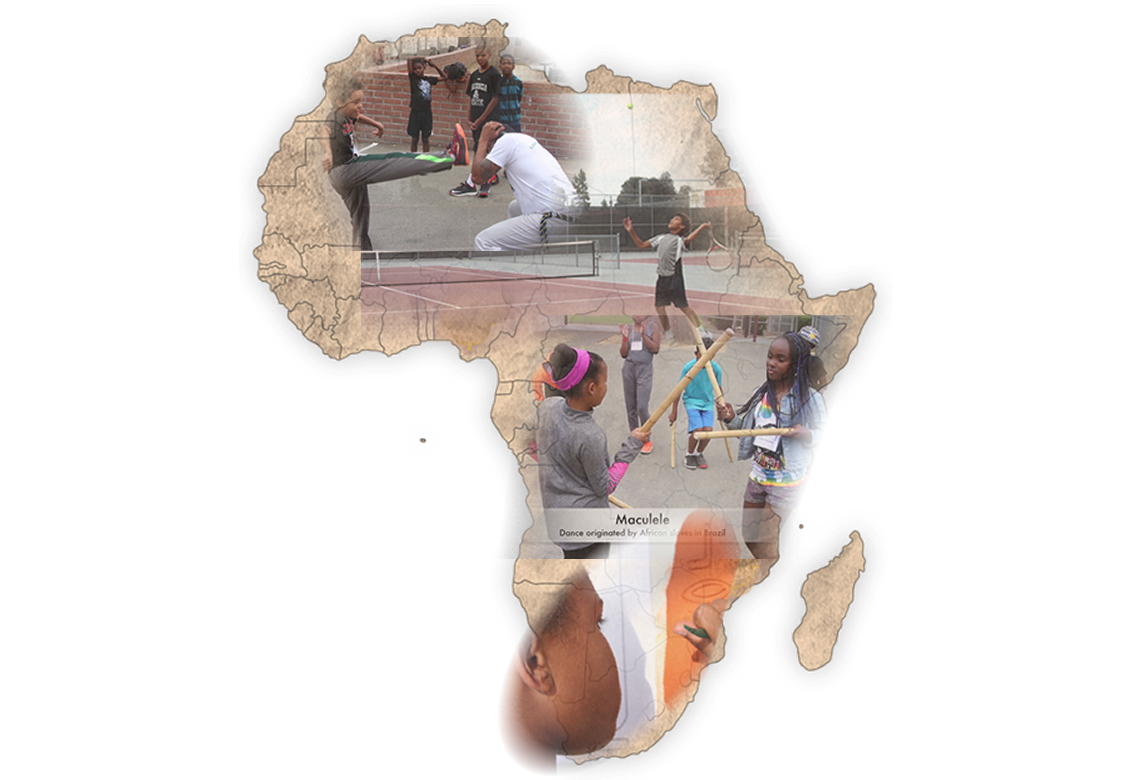Immersing students in a Pan-African curriculum
and fun activities that teach lifelong skills
QUICK FACTS
- PROUDLY CELEBRATING 9 YEARS
- 7:1 STUDENT – TEACHER RATIO
- VIRTUAL LEARNING OPPORTUNITIES
- EARLY BIRD, SIBLING, & RETURN STUDENT RATES
WE OFFER
- WORKSHOPS
- SUMMER CAMP
- GOLF CLINICS
- LASTING FRIENDSHIPS
- AN AFFORDABLE EXPERIENCE
PROGRAMMING
FUNDRAISING
STORE
PROGRAMMING
FUNDRAISING
STORE

Capoeira
Brazilian martial art developed by slaves and former slaves bought from Africa, that combines elements of dance, acrobatics and music.

Tennis
Even the USTA sees room for growth: "...we want the game of tennis and the tennis courts across this country to reflect the unique diversity that makes America great"

Maculelê
Maculelê an Afro-Brazilian dance where a number of people gather in a circle called a roda. In the roda, one or more atabaques positioned at the entrance of the circle. Each person brandishes a pair of long sticks, traditionally made from biriba, canzi, or pitia wood from Brazil.

Literacy, reading, and learning about our diaspora are prominent throughout the program.

Pan-African Curriculum
Fun Activities
Alongside
Academics
Exposing children to lifetime activities and sports from which they are often barred due to access.
Pan-African Curriculum
Fun Activities
Alongside
Academics
Exposing children to lifetime activities and sports
from which they are often barred due to access.

Capoeira
Brazilian martial art developed by slaves and former slaves bought from Africa, that combines elements of dance, acrobatics and music.

Tennis
Even the USTA sees room for growth: "...we want the game of tennis and the tennis courts across this country to reflect the unique diversity that makes America great"

Maculelê
Maculelê an Afro-Brazilian dance where a number of people gather in a circle called a roda. In the roda, one or more atabaques positioned at the entrance of the circle. Each person brandishes a pair of long sticks, traditionally made from biriba, canzi, or pitia wood from Brazil.

Literacy, reading, and learning about our diaspora are prominent throughout the program.

